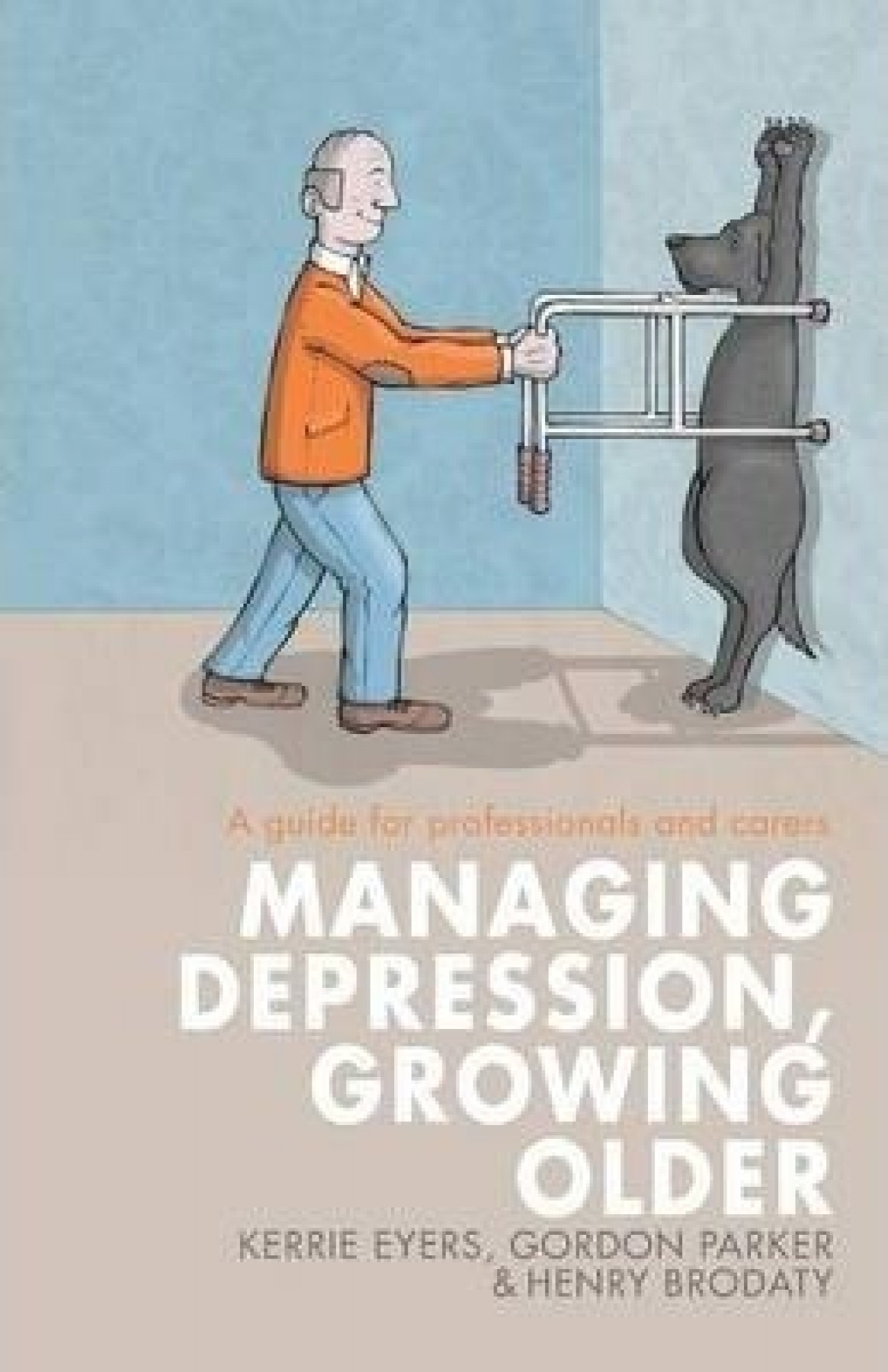“Age is something that catches us by surprise” begins this small but comprehensive book. With increased life expectancy and the bumper crop of baby boomers now reaching retirement age, this new publication from the Australian Black Dog Institute is a timely addition to our understanding of depression in later years.
The world is getting older, but as the editors of Managing Depression Growing Older point out, ageing itself is not a disease. And depression, while no stranger to old age, is not an inevitable companion either.
Current world rates of clinical depression are said to be no higher for older people than for other age groups. Though these rates may reflect the fact many older people are reluctant to seek treatment, are misdiagnosed or not referred for treatment in the first place. The statistics may also reflect the stigma remaining around “admitting weakness” or about having a psychiatric illness.
That said, the risk of suicide climbs steeply with age, especially among men and older people who experience chronic pain or illnesses such as heart disease, stroke, Parkinson’s or Alzheimer’s, as well as those in residential care who experience high rates of clinical depression.
Dual perspectives
This book is intended for professionals and carers involved with older people and for people who themselves experience or have experienced depression. Its point of difference from other similar texts is that it includes perspectives from both those who experience depression or its impact, as well a series of case studies from international psychogeriatric (will someone please come up with a better word!?) experts.
The stories of experience of depression from older people, their children and those who care for them come from the Black Dog Institute’s writing competition in 2010. The stories are insightful and many readers will be able to empathise with the writers, or perhaps think about someone in their lives in a whole new light.
Despite the somewhat gloomy topic, the stories are immensely readable. Here’s a quote from Alistair: “The black dog comes to you. Never whistled, never welcome and never leaving until good and ready. What kind of reward is that for someone finishing nearly 50 years in the workforce?”
Refreshing honesty
The clinicians/experts, too, write with a refreshing honesty about the puzzle that depression can be, not only because it is such a diffuse term, but also because in older people it can manifest differently. For example, depression will often present via physical symptoms that can camouflage underlying emotional issues in older people. Often GPs don’t think, or are not trained, to ask the emotional questions.
This inside-out and outside-in format is interspersed with chapters on the types of depression (the Black Dog Institute uses a hierarchical and more comprehensive model of depression than some clinical models), therapies and the role of therapists, managing severe depression, caring for carers, and, particularly useful, how to go about persuading an older loved one or friend to seek an assessment for depression.
There is also a section on self-efficacy in older age and strategies for maintaining a positive outlook, such as connection to communities, exercise, good nutrition etc. I particularly liked the advice to “figure out your signature strengths… and then try and find avenues in life to exercise them.”
Typeface needs work
The construction of this book may sound a bit messy, but it allows the reader to dip in and out of what otherwise might be quite a dense read. One technical niggle, hard on those of us who are sight-challenged, is that on almost every page the typeface runs together in some places so that wordsonthepageappearjoinedtogetherlikethis. Initially I thought I was going cross-eyed.
The book’s main message is that depression is treatable, and that support should be sought as early as possible. Publication of this book is a step in the direction of, as is the editors’ expressed wish, reducing the double stigma of ageism and mental illness.
Reviewed by Katherine Findlay, writer and editor
I Need Help Now
Help for you or someone important to you
More

